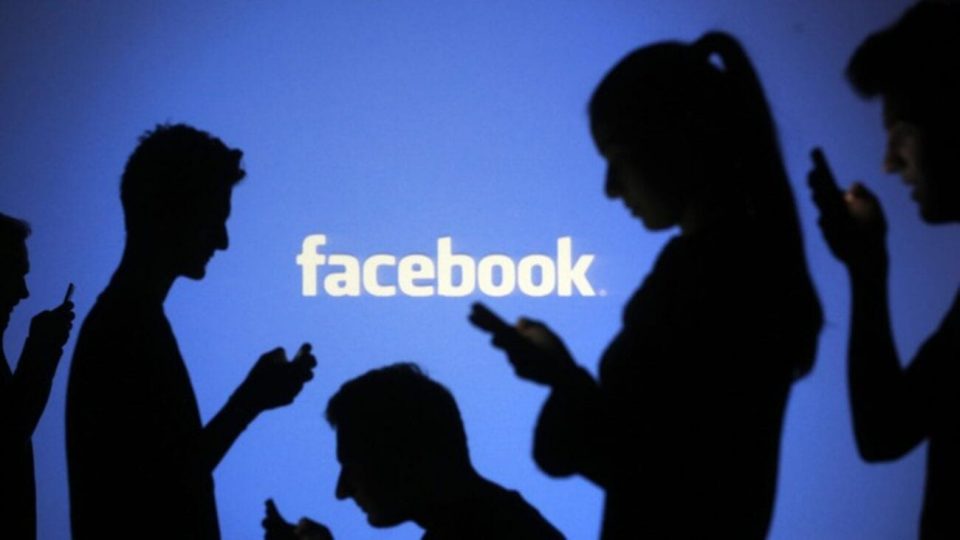5th February, 2022
By Umair Haque
PM NEWS- Nigeria
Finally, Facebook’s empire is beginning to crumble. By now you’ve heard that it lost users for the first time globally, which triggered a massive crash in the share price, which went on to crash the stock market in general. All of this, though, has been eminently predictable, if a long time coming. What’s really going on here?
It turns out that hate, because it is toxic for people, is not a great business model. I know that every second-rate venture capitalist and wannabe Zuck thinks hate is awesome. But that’s far from the truth. Let me try to explain.
The early web platforms, like Facebook, succeeded because of simple facts of what’s called “network economics.” To understand “network economics,” you only need to grasp three things. One, the network with the most users sees a kind of positive feedback effect, a kind of snowball effect. If I’m on the network, and you are, then our friends are more likely to be, too, because it’s the place to be — these are called “network effects.”
Second, because of that, there is a “first mover advantage” — the first one to launch tends to win, or at least one of the first ones. Third — and this is the crucial bit — once you’ve established this kind of dominance, your advantage is almost unshakable.
Now if another network comes along, it has to hit a point of critical mass, to get people to defect and use it. I’d need most of my friends to go somewhere else to convince me. But so would they. This is called “lock-in,” and it explains why internet companies, once they succeed in building a network at large scale, like Facebook did, end up being monopolies. These economics hold true for everyone from YouTube to Spotify and so on.
Lock-in is incredibly powerful. It is almost impossible to defeat a network once it’s scaled up, because the point of critical mass is too high — all your friends have to leave, not just one or two.
I say that because that is how badly Facebook has screwed up. It has done the impossible — defeated the laws of network economics, and ruined its own market dominance. LOL. Defeating network effects was said to be almost undoable. And yet somehow, Facebook made itself so toxic, so awful that even network effects and lock-in couldn’t keep people on the platform.
And what that means is that Facebook’s worst enemy turned out to be…itself.
What happened was something like this. Facebook built this huge empire thanks to the laws of network economics — network effects, first-mover advantage, lock-in. It was, in the beginning, a dumb, gross app to rank the “hotness” of “girls.” VCs, being the dudebros they are, threw money at it.
First mover advantage. People joined. It grew to scale, establishing network effects. People were locked in. The money started rolling in.
And then Facebook decided that all this gave it a license to put personal politics first. It allowed hate to spread, vitriol became the norm, disinformation was rampant, and so forth. More or less anyone sane grew weary with Facebook.
But Facebook’s management didn’t care. In their estimation, hate was a wonderful business model. But they had fundamentally misunderstood the economics at work here. It wasn’t hate that was keeping people on the platform — it was network economics. All the hate, the vitriol, the disinformation? That was making people distrustful of Facebook. Weary with it. Tired of it. It was starting to chip away even at the immense power of network effects and lock in.
But Facebook’s management didn’t get this. They conflated these two things. They thought that hate and controversy and whatnot were the secret to their success. They never were. It was just network effects and lock in and first mover advantage. And the distrust and unease people felt at Facebook’s obvious indifference to by now terrible, terrible things — it helped a genocide here, it helped install a Trump there, it fuelled misogyny and racism here — was undoing the network effects and lock in at the heart of its success.
Who really wanted to stay on Facebook? Join it? No one much, really. Do you see how these two things — network effects, and hate — were conflated by Facebook’s managers, from Zuck to his minions?
For Facebook, the platform had become basically a way to spread the personal politics of its own management. Zuck obviously leans hard right, and so do his minions — why else allow things like they’ve done? They imagined, in their dream world, that this was all great business. Unfortunately for them, it was going to lead to a crisis, because people simply did not want to do business with Facebook much anymore, unless they absolutely had to. The idea that platform is just a base for the personal politics of its top management is a big mistake, especially when those politics are ugly and misogynistic and racist and hateful.
And so when rivals did come along — what happened? Well, they exploded, particularly amongst the young. Because young people, especially, do not share the politics of Facebook’s founders. They do not believe in hate and supremacy and misogyny and cruelty and greed. Young people these days? They’re all practically Karl Marx, because they can see how violently and stupidly capitalism has failed them. They lean so far left that the ghosts of Einstein and Orwell — both of whom were socialists — are smiling in the quantum beyond.
——————————————————————————————————————————————————————————
Statements, comments or opinions published in this column are of those of the author(s) and do not necessarily reflect the editorial policy of Warsan magazine. Warsan reserves the right to moderate, publish or delete a post without prior consultation with the author(s). To publish your article or your advertisement contact our editorial team at: warsan54@gmail.com

